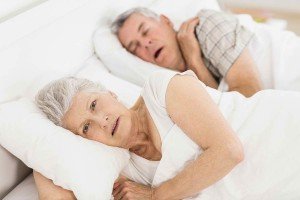Sleep Apnea
 Do you still feel tired after a full night’s sleep? Are your family members complaining about your snoring? If you said yes, then there is a chance that you may need to be evaluated immediately for sleep apnea.
Do you still feel tired after a full night’s sleep? Are your family members complaining about your snoring? If you said yes, then there is a chance that you may need to be evaluated immediately for sleep apnea.
What Is Sleep Apnea?
Sleep apnea is a sleeping disorder. People with this disorder stop and start breathing over and over again throughout the night. It can last for several seconds or several minutes at a time. People who have sleep apnea may not even be aware that this is happening to them. They just know that they are tired and not getting enough rest because it can cause low blood oxygen levels and sleep deprivation.
Sleep apnea is more common in people with low muscle tone and the elderly. It is also more common in men than in women and children, but it can really happen with anyone. In order to be diagnosed, a professional evaluation is needed.
Three Main Types
There are three main types of sleep apnea:
- Obstructive sleep apnea-This is the most common type of sleep apnea. With this type, the muscles in the throat relax too much while the person is sleeping, obstructing their breathing.
- Central sleep apnea- Central sleep apnea is caused when a person’s brain stops sending signals to the muscles in the body that controls breathing.
- Complex sleep apnea-Complex sleep apnea is a combination of both obstructive sleep apnea and central sleep apnea.
Dangers of Sleep Apnea
Patients with sleep apnea have shown a lot of negative effects. The cells in your body need a constant flow of oxygen to survive. If they are deprived of oxygen, they start to die. This can cause arrhythmias, angina, or even heart attacks and strokes if it goes on for long periods of time. Patients with sleep apnea have also been known to show a loss of memory functions and brain tissue.
Treatment Options
After being diagnosed with sleep apnea, a treatment plan will be made. Sometimes it is as easy as behavioral therapy. It could be as simple as not taking sleeping pills or other sedatives and to avoid alcohol. These substances may cause the muscles to relax further, causing more damage. Without these substances, your apnea may resolve itself.
Sleep apnea can also be treated with continuous positive airway pressure, or a CPAP device. This is a device that is worn at night and provides a steady stream of air to keep the airway open. They usually look like some kind of mask and may take some getting used to when sleeping, but it is better than the alternative dangers.
If one of these devices does not work, your dentist may have another option for you. There are a couple different types of dental devices that can be worn at night to help keep your airway open. These devices are fitted directly to you by your dentist to keep your tongue in place and your airway open. They are worn like a mouthguard at night. As a final treatment option, surgery may also be required.
If you think you or someone in your family may have this condition, it is important to seek professional help right away. The condition does not improve on its own, and damage may already be occurring. Contact a professional for a sleep study or more information today. Our office takes Medi-Cal and most private and public insurance, and also offers special pricing plans for patients that pay in cash.